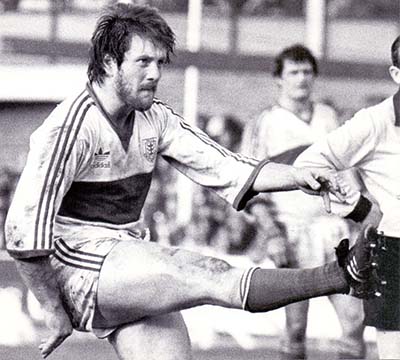 The Scottish Man of Steel
One of the great fullbacks and goalkickers of the 1970s and 1980s, George Fairbairn was a Scotsman who held England’s all-time points-scoring record until recently.
He played with distinction for Wigan, where he won the Man of Steel award, and Hull Kingston Rovers.
He played in the 1977 World Cup Final and was o
The Scottish Man of Steel
One of the great fullbacks and goalkickers of the 1970s and 1980s, George Fairbairn was a Scotsman who held England’s all-time points-scoring record until recently.
He played with distinction for Wigan, where he won the Man of Steel award, and Hull Kingston Rovers.
He played in the 1977 World Cup Final and was o Rugby League Heroes: George Fairbairn
 The Scottish Man of Steel
One of the great fullbacks and goalkickers of the 1970s and 1980s, George Fairbairn was a Scotsman who held England’s all-time points-scoring record until recently.
He played with distinction for Wigan, where he won the Man of Steel award, and Hull Kingston Rovers.
He played in the 1977 World Cup Final and was o
The Scottish Man of Steel
One of the great fullbacks and goalkickers of the 1970s and 1980s, George Fairbairn was a Scotsman who held England’s all-time points-scoring record until recently.
He played with distinction for Wigan, where he won the Man of Steel award, and Hull Kingston Rovers.
He played in the 1977 World Cup Final and was o 